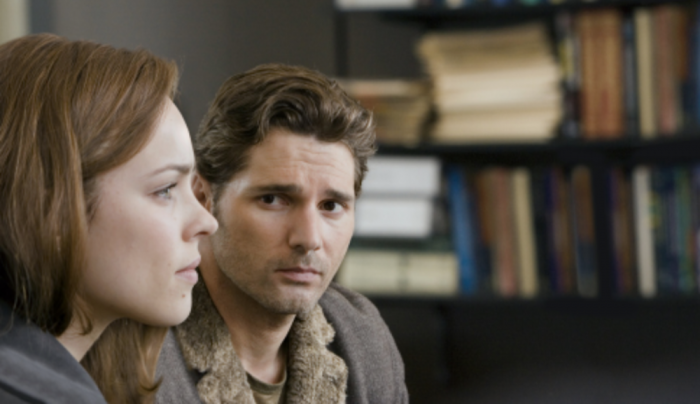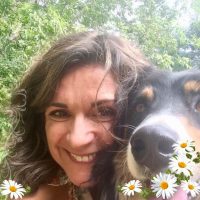Life has taught me that human relationships, the deep intimacy between two people, are the best arena for growth.
I have also learnt that the relationship arena is not for the faint-hearted.
It is where we do battle with the trauma of childhood, where we see the truth of our parental and societal programming, where we come to realize that no matter how much we love the other person, we love ourselves more, and that staying true to ourselves is the only way to meet the other at our 50-percent line.
My partner Mark and I have been together for nearly two and a half years—long enough to have moved through the romantic phase and experience various levels of power struggle.
Over the weekend, we visited our arena. The reason for the conflict is not as important as how we moved through it and what we learned about ourselves once the dust settled.
As a little girl, my parents fought a lot. Loud, ruckus arguments that often ended in violence. I coped by hiding under the duvet, fingertips shoved deep inside my ears, until all I could hear was the beating of my heart. I’d stay very still, my breathing shallow, waiting for the fighting to stop.
The following morning, Mom would go through the motions of taking care of me, preparing breakfast, helping me dress for daycare, but she wasn’t really there. At three years old, although I couldn’t put words to it, I felt the vacancy inside her.
I unconsciously stored that information as, I am invisible. I don’t know why I did this. It was an innate reaction of a young child.
Fast-forward 50 years. A visit to the relationship arena.
Day 1.
My partner and I are engaged in a conflict about a sensitive topic, a concern I’ve been holding back in fear of upsetting him. My intention, I believe, is to bring his awareness to something I’ve observed. I hope that if I use a lot of “I” pronouns and avoid beginning sentences with “You,” that Mark will accept my observations without taking them as criticisms and judgments.
The conversation deteriorates quickly. He receives a different message than the one I intended and shuts down.
We sleep in the same bed that night, but the disconnect feels as thick as a brick wall between us.
Day 2.
The following morning, I am feeling more centered. I want to talk again. Connect. Mark, on the other hand, seems to have withdrawn to the other side of the planet.
I don’t understand. I try to talk to him, to reach him. His eyes have turned a dark shade of grey that I interpret as cold and some twisted part of my brain flashes on the movie “Invasion of the Body Snatchers,” where aliens grew clones of people inside giant plant pods.
He talks to me from a distant place without a hint of emotion. The more he withdraws, the more invisible I feel. Heat spreads through my chest, and I make an attempt at a deep breath. I remember my counselor’s words: “When you feel yourself falling into trigger, ask: When was the first time I felt this way?” I do, and bam! I’m right back at three years old, my mother not seeing me.
At this point, I feel a faint glimmer of consciousness, but it’s short-lived.
I sit on the edge of the bed, tears streaming down my face. I am shaking. Although I know that his reaction is not my responsibility, I entertain the thought that I am to blame for his withdrawal, that I am bad.
With a tiny speck of reason left, I decide to let him be. Even though this is hard for me, I gently close the door to the bedroom and go about my business.
After about an hour I return, hoping to reconnect. I kiss his temple, tell him I love him. I believe I am doing and saying all the right things, when in reality my motivation is to spark some emotion in him so that I feel safe.
Mark isn’t able to snap out of his disconnect. I don’t know what else to do, and the discomfort and fear I feel in my body is drowning any reason I may have hoped for. I ask him to leave, but before he does, in a last-ditch effort to ease my pain, I block him in the hallway. “See me!” I scream and point to my tear-streaked face. “Just see me!”
The only emotion he’s capable of at this point is anger, and it is what emerges. It is not what I want.
Hours later, we speak on the phone. He tells me he doesn’t want to be alone, but doesn’t think he can connect with me in a way I need him to. I don’t listen to my intuition that warns me to stay put. I convince myself that I can hold space for him in his disconnect. I tell him I’ll come to his house, prepare dinner, and just sit with him on the sofa while we watch a movie.
In reflection, I wish I had stayed home. I wish I had given more time to my triggered little girl, let Mark have time with his triggered little boy. Instead, I moved way over my 50-percent line, foregoing my own boundaries in order to reach him in a place I had no business visiting.
I end up leaving that night, feeling angry and frustrated. I accuse him of not trying. I tell him it’s impossible to hold space for someone who doesn’t want space held for him. I leave without a goodbye, and, when I get home, that is what I regret the most.
Day 3.
We talk over video chat. I notice his eyes have cleared. He tells me that he thinks there is something wrong with him because of his inability to connect when I need him to. He cries, and I feel compassion for him, an opening where I can see him past my own sh*t.
It’s my idea to meet somewhere neutral, so neither of us feel that we are in the other’s territory.
We walk in Millcreek Ravine, the snow crunching under our feet. We are silent, then we talk a little. We stop at the lookout with a view of downtown. We face each other and talk openly about what has been our experience in the arena.
Some of what Mark says is hard for me to hear, but I listen. I acknowledge that his emotional wiring is different from mine, that when in trigger, we each have to take care of ourselves first before we can be there for the other.
When in conflict with someone we love, it is integral to remember that arguments and misunderstandings are a natural by-product of being human in relationship. In love, as in nature, storms serve to clear the air, to wash away the old to make space for new growth.
When the dust settles and we stand, exhausted from the rigors of the storm, we see each other with new insights, unobscured by triggers, old beliefs, and programs. We are purer somehow, less guarded, more willing to show up vulnerable.
So stay in the uncomfortable. Stay curious. Trust that the storm will pass and that what is left behind will enrich the relationship.


No comments:
Post a Comment